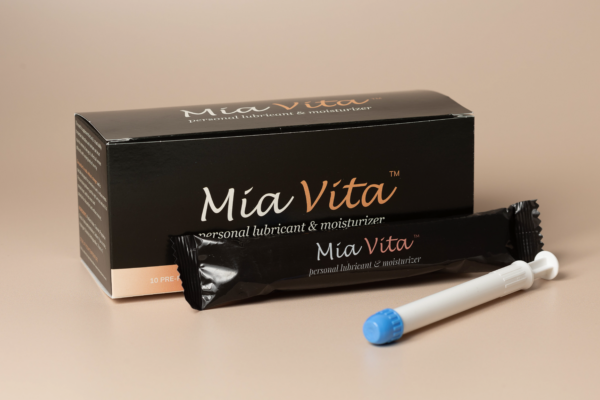
The perimenopausal years can be a chaotic and unpredictable journey. Along with waning estrogen production, egg quality declines, and menstrual cycles become erratic. Though women 40 and over are 50% less fertile, and long periods between periods can make you forget all about the potential for pregnancy, the possibility remains, and when it happens, it can be confusing, not to mention surprising. Following is a summary of what to look out for so you can be prepared to navigate perimenopause with confidence.
In 2020, nearly 0.1% of women aged 45 and above gave birth. Of these, 995 babies were born to women aged 50 and older. And this represents an increasing trend since 1997, when only 144 births were recorded for women 50 and older.
On top of navigating the symptoms of perimenopause, it’s important to remember that you’re not officially in menopause and past your fertile years until you’re 12 months out from your last period. While it would seem that perimenopause and pregnancy are as different as they can possibly be, some of their symptoms are similar. As a result, amidst the many new and strange symptoms of perimenopause, the beginning of a new pregnancy can, and sometimes does, go unnoticed.
Symptoms That Occur in Both Perimenopause and Pregnancy
- Missed Periods
During perimenopause, the menstrual cycle becomes irregular, and you can stop having periods for months at a time, only for them to return. In between, fluctuating hormone levels can lead to spotting.
In early pregnancy, spotting can also occur, but rather than a hormonal cause, spotting happens from the implantation of the fertilized egg into the uterine lining. Additionally, miscarriage in the first trimester, an ectopic pregnancy, or an infection of the cervix can also cause bleeding. However, if the bleeding is heavy or accompanied by pain, it’s important to see your doctor to have it checked out.
- Hot Flashes and Night Sweats
Estrogen and progesterone have regulatory effects on body temperature, and though hot flashes and night sweats are among the most common symptoms of perimenopause, we usually don’t associate them with pregnancy. However, they’re actually not uncommon, particularly in the first trimester, when estrogen declines. Later on in pregnancy, estrogen levels gradually increase, and hot flashes, if they have been occurring, should decrease.
- Fatigue
Pregnancy is a very metabolically active, energy-consuming process, and fatigue, particularly in the first trimester, can be extreme for some women. Pregnancy fatigue can make it difficult to get out of bed and will generally follow you throughout your day. Pregnancy-related fatigue usually resolves after the first trimester.
Fatigue is also a very common symptom of perimenopause that the majority of women experience. It can result from one or more of a variety of causes, including hormonal fluctuations, perimenopausal sleep disturbances, the effects of chronic stress, or as part of the brain fog and mental fatigue that often occur during perimenopause.
- Difficulty Sleeping
Insomnia is very common in perimenopause, often due to hot flashes and night sweats that can interrupt sleep. Additionally, during perimenopause, women can become more vulnerable to the effects of certain lifestyle factors, such as lack of exercise, overconsumption of caffeine, eating too late at night, or chronic stress, all of which are buffered to various extents by the protective effects of estrogen, and as estrogen declines, can result in sleep disturbances.
Insomnia is less common in early pregnancy, which is usually characterized by increased rather than decreased sleep. However, for a newly pregnant woman, symptoms such as nausea and vomiting, the need to urinate more frequently, breast tenderness, or abdominal discomfort can interrupt sleep.
- Urinary problems
Frequent urination is a common symptom of early pregnancy due to increased blood flow to the pelvic organs.
In perimenopause, frequent urination generally occurs in the form of stress incontinence due to atrophy and weakening of pelvic floor muscles and happens when you cough or sneeze or lift something heavy.
- Mood Changes
Dramatic hormonal changes in early pregnancy can bring dramatic mood swings, with elation followed sharply by anxiety and back again throughout the day.
In perimenopause, mood shifts tend to take a downturn, characterized by increased irritability, anxiety, and depression, typically without upswings.
- Weight Gain or Loss
In perimenopause, declining estrogen levels lead to loss of muscle and bone mass and slower metabolism, all of which can add up to weight gain. Additionally, fat distribution shifts away from the hips and buttocks and towards the abdomen, which can mimic a pregnancy belly.
In early pregnancy, a few pounds of weight gain is normal, but a lot of morning sickness (definitely not a sign of perimenopause) can cause some weight loss.
In discerning perimenopause from early pregnancy, it’s important to consider your overall combination of symptoms and visit your doctor regularly to discuss any recent changes or questions you may have. This content is informational in nature and is not meant to replace the advice or counsel you may receive form your healthcare professional.
FemmePharma has been helping women navigate menopause for over two decades. No matter where you are in your journey, you deserve to have knowledgeable, intimate healthcare partners to help you feel your best. Explore our other articles, podcast episodes with women’s health experts, and products to ease your transition into menopause.


